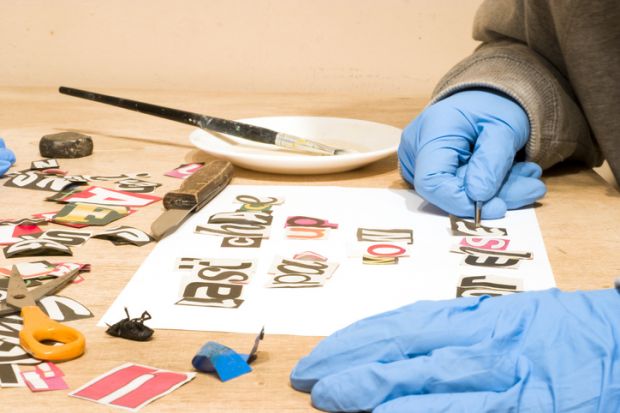Australia’s regulator is pressing for a law specifically targeting contract cheating, amid claims that the problem has taken a “nasty” turn.
The Tertiary Education Quality and Standards Agency said essay mills were blackmailing students to boost their profits and warn off whistle-blowers. “[They say] we’ll let your university know that you didn’t do those assignments, and they’ll take your qualification away, so pay us more money,” chief commissioner Nicholas Saunders told Times Higher Education.
“My understanding is that this is widespread. It’s a very nasty development.”
TEQSA has designated the issue as a focus area after being allocated A$3.1 million (£1.7 million) in May to “crack down” on contract cheating. The agency is helping universities boost their capacity to identify and tackle cheating as well as supporting the education department’s push for new legislation.
TEQSA said the initial proposal was to outlaw advertising of contract cheating – a more realistic aim than moving against the cheating services themselves, given that many are based overseas.
However, the new law could be some time coming. With advertising regulation largely under state and territory jurisdiction, any new legislative approach needs to be coordinated through the Council of Australian Governments.
New Zealand amended its Education Act in 2011 to make it illegal to “provide or advertise cheating services”. Some US states have similar legislation and the Republic of Ireland recently introduced a bill to enable prosecution of cheating companies.
TEQSA said it was working closely with the UK’s Quality Assurance Agency, which is also considering new legislation. Both agencies last year issued best practice guides highlighting institutional measures to tackle the problem.
Professor Saunders said that, while contract cheating was already sanctioned under fraud and consumer protection legislation, more specific legislation would send a “powerful” signal that “this is a serious matter”.
But he said laws alone could not solve the problem, partly because police resources were too stretched to make contract cheating a priority.
“Providers can put in place a whole range of other measures, from inducting their students correctly to making sure that the staff understand the things that lead to contract cheating, how you recognise it, what disciplinary action you take for first offence and so on.”
A conference hosted by TEQSA last month heard that “really aggressive predatory companies” were targeting vulnerable students, particularly foreigners. “They present themselves as there to help,” one academic said. “[When] we find one and send them a letter, literally the next day they change their names and keep on operating.”
Australia’s National Union of Students said funding cuts at a time of rapidly increasing enrolments had left students without vital support services. “That pressure is what pushes some students to go down the contract cheating path,” said NUS president Mark Pace.
Register to continue
Why register?
- Registration is free and only takes a moment
- Once registered, you can read 3 articles a month
- Sign up for our newsletter
Subscribe
Or subscribe for unlimited access to:
- Unlimited access to news, views, insights & reviews
- Digital editions
- Digital access to THE’s university and college rankings analysis
Already registered or a current subscriber?








